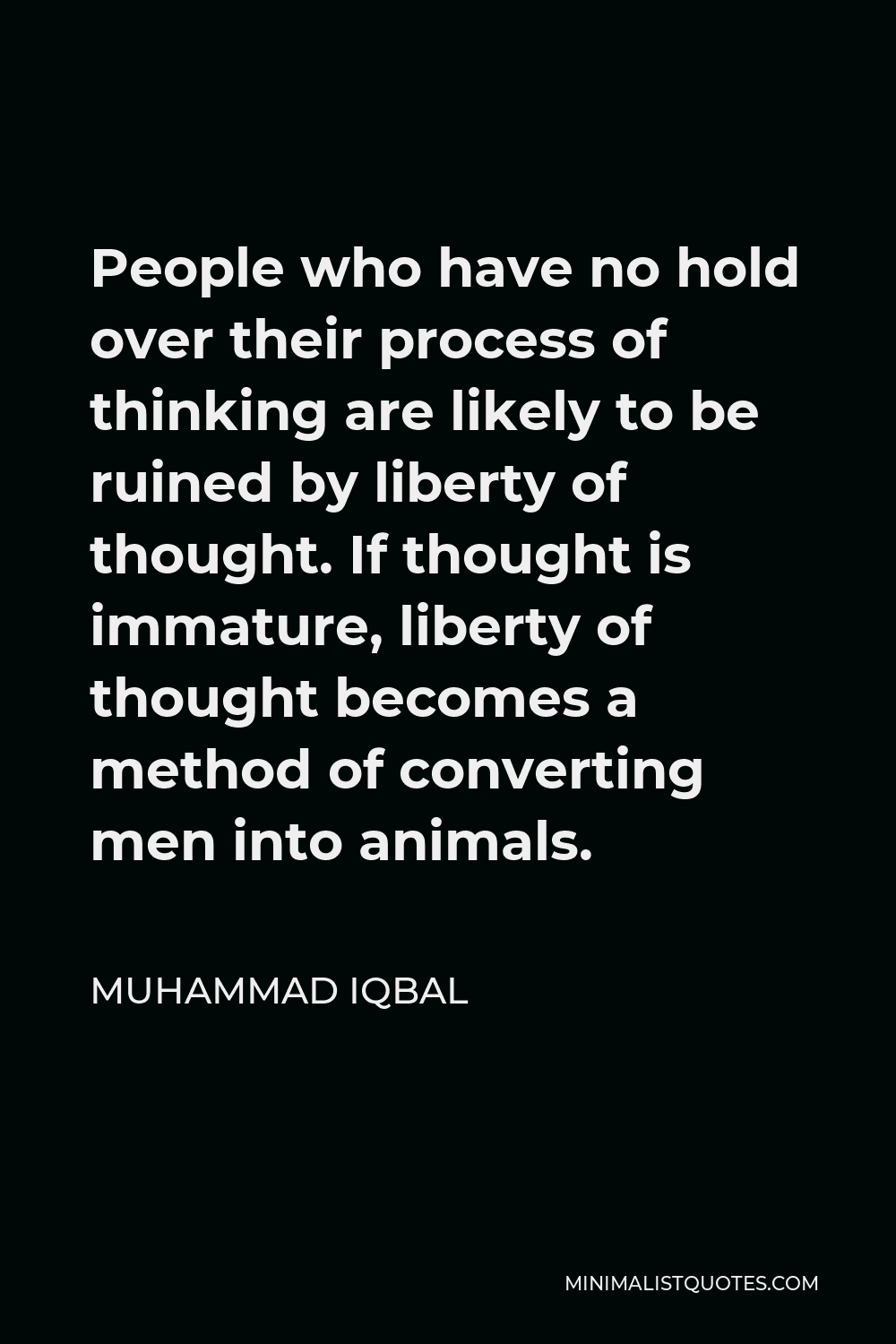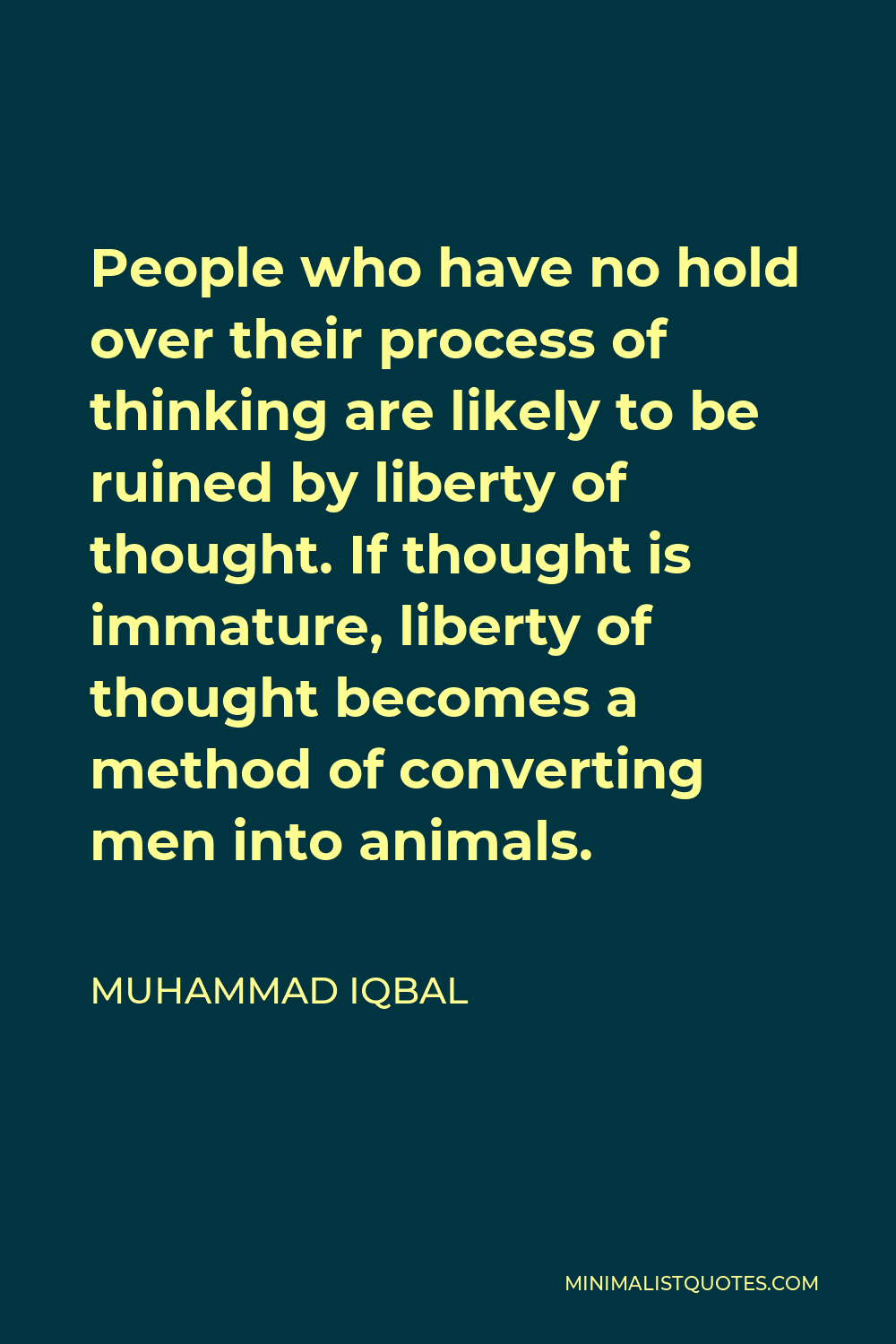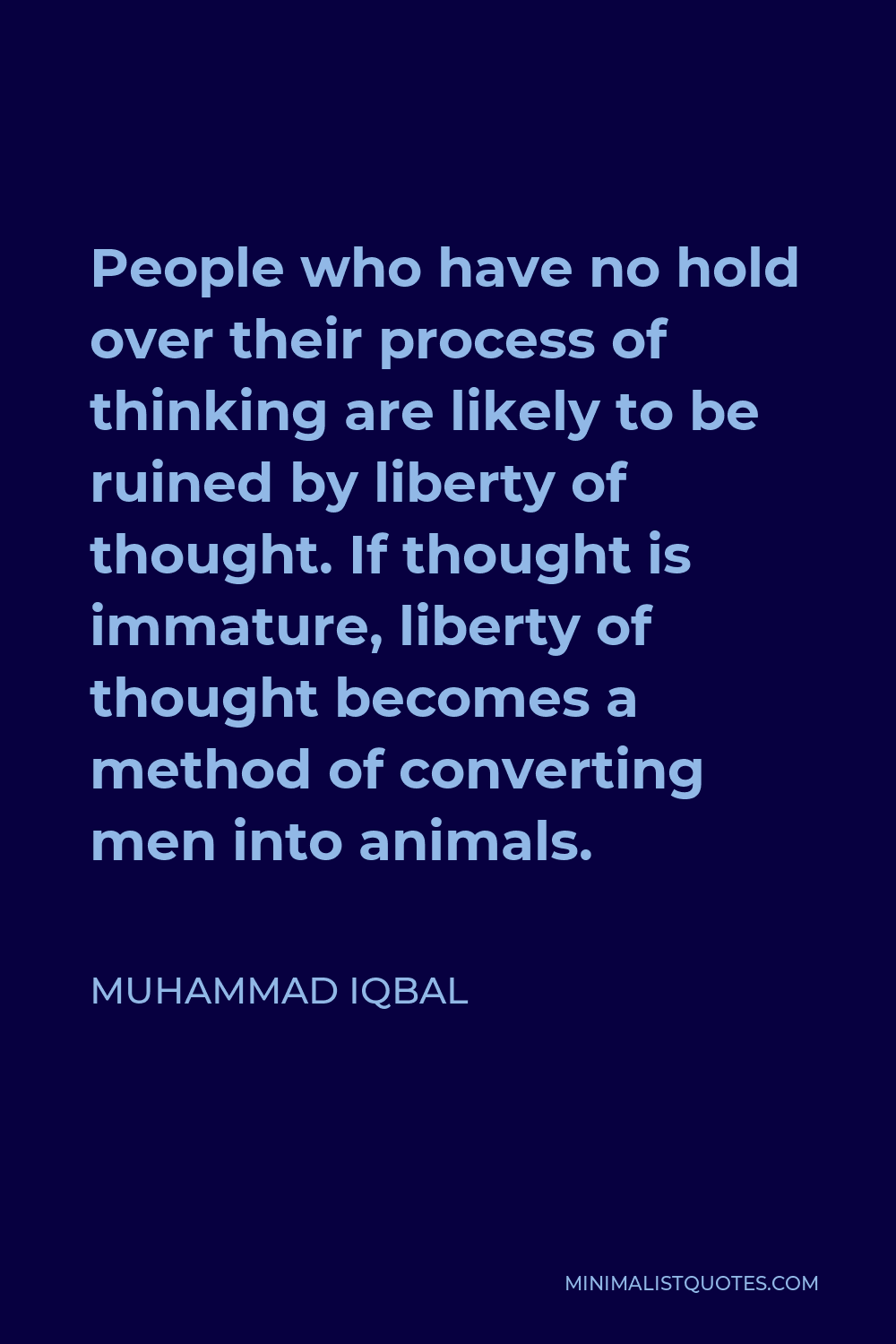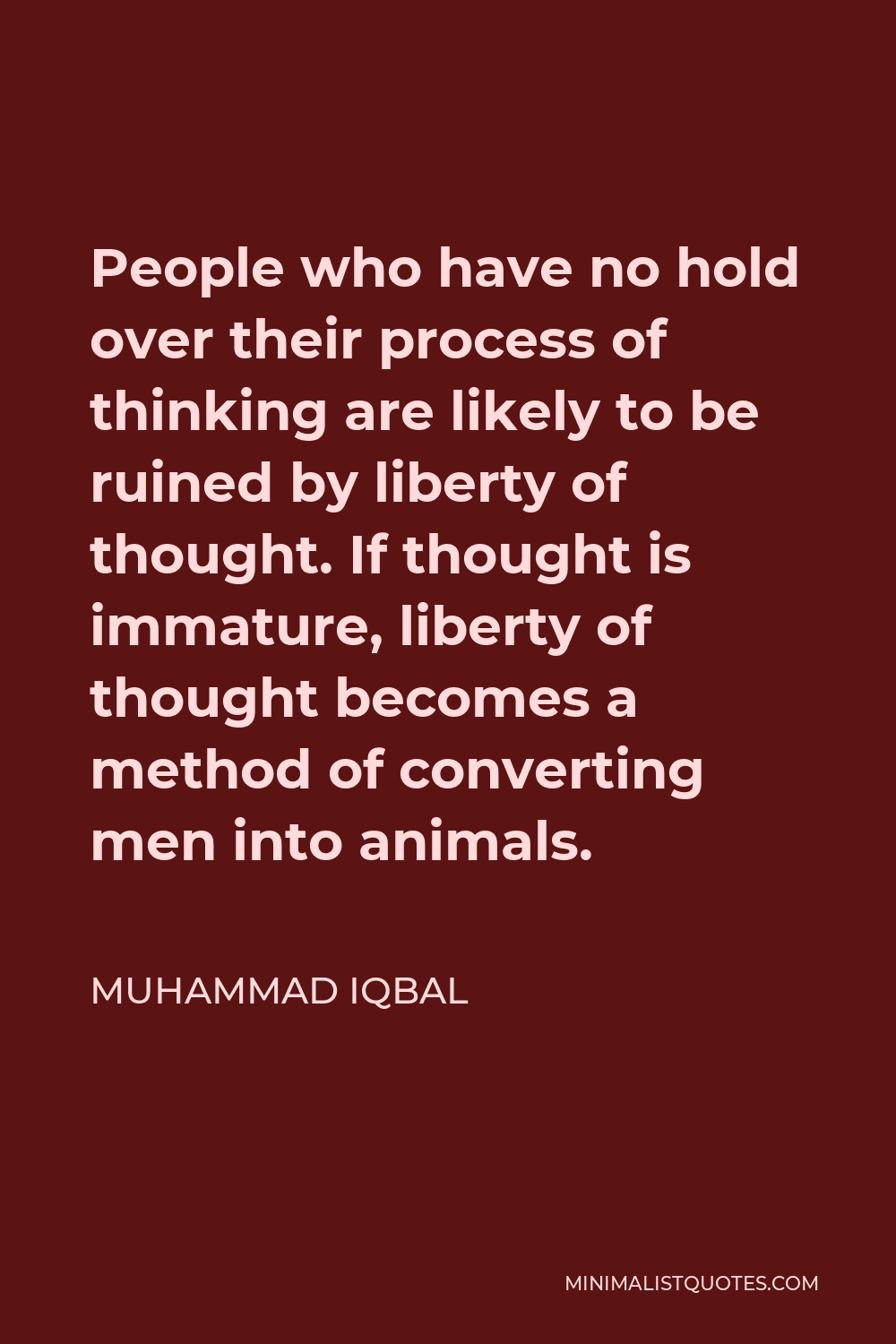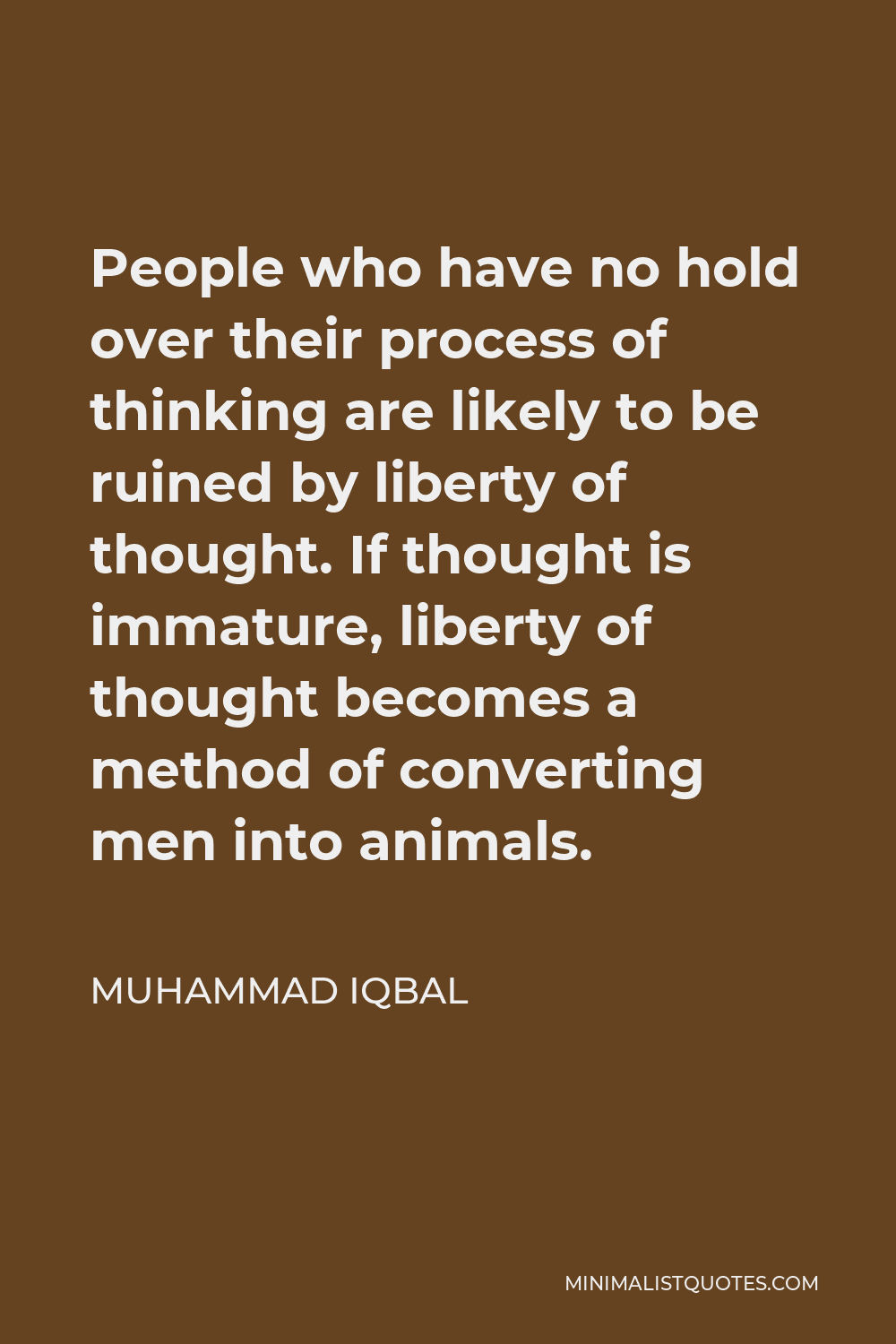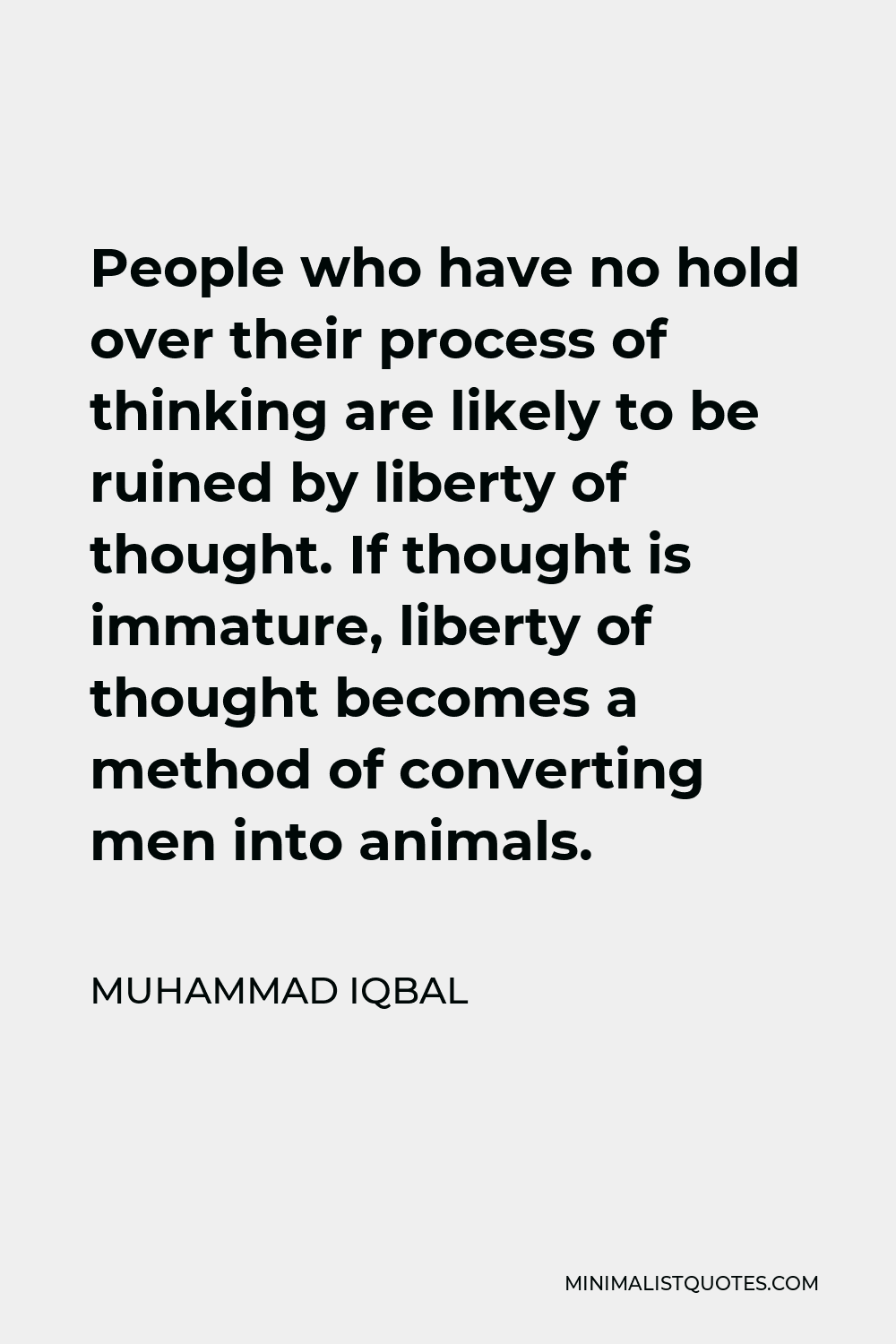Since love first made the breast an instrument Of fierce lamenting, by its flame my heart Was molten to a mirror, like a rose I pluck my breast apart, that I may hang This mirror in your sight.
MUHAMMAD IQBALPeople who have no hold over their process of thinking are likely to be ruined by liberty of thought. If thought is immature, liberty of thought becomes a method of converting men into animals.
More Muhammad Iqbal Quotes
-





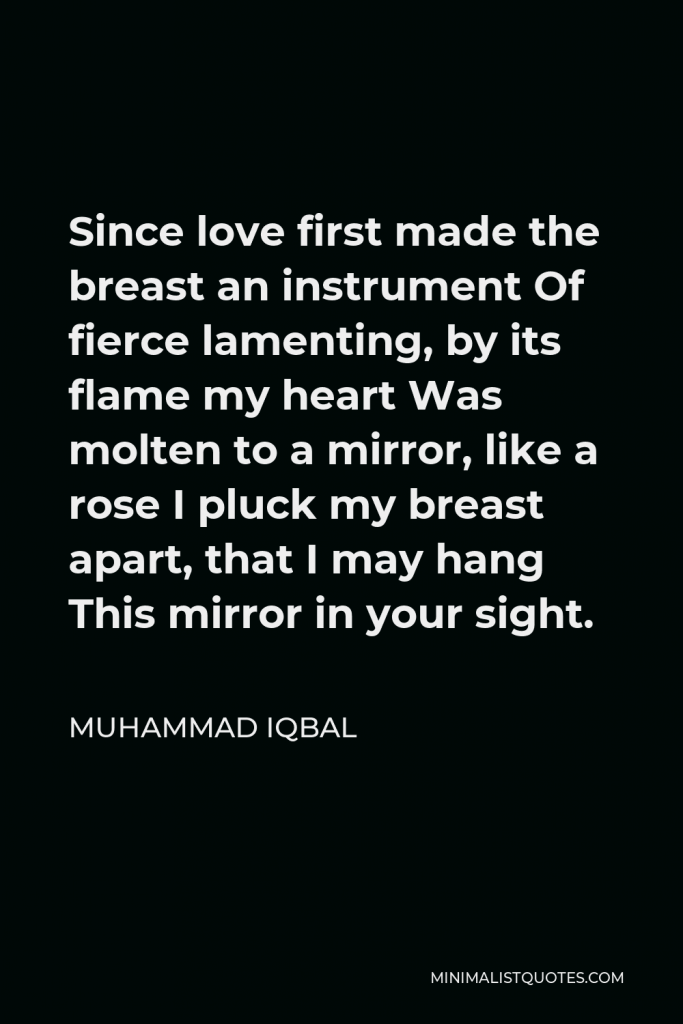

-





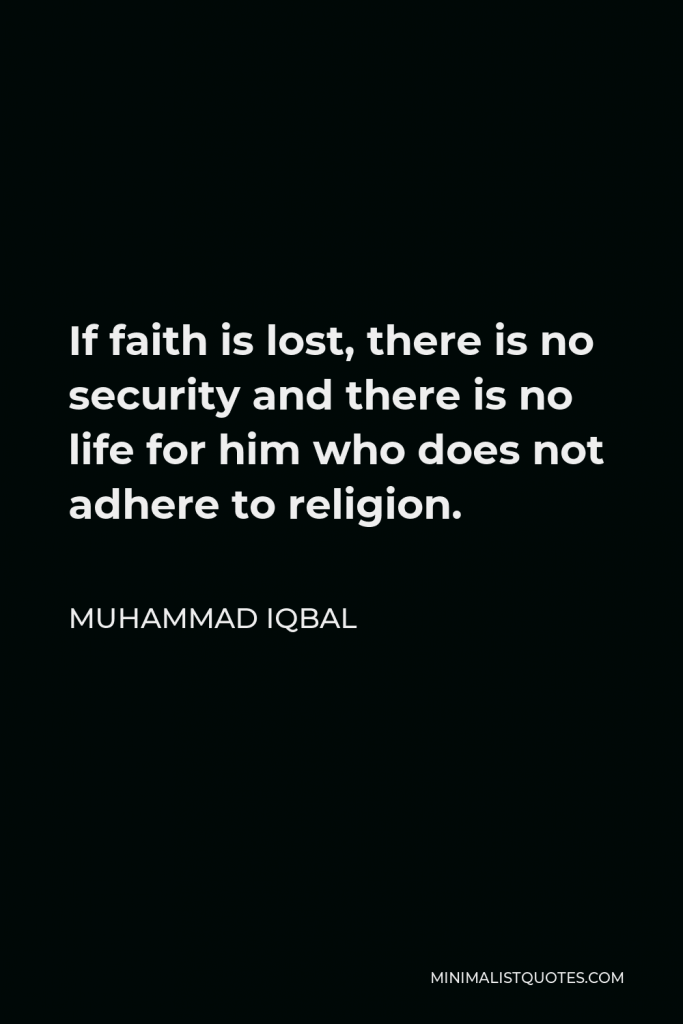

If faith is lost, there is no security and there is no life for him who does not adhere to religion.
MUHAMMAD IQBAL -





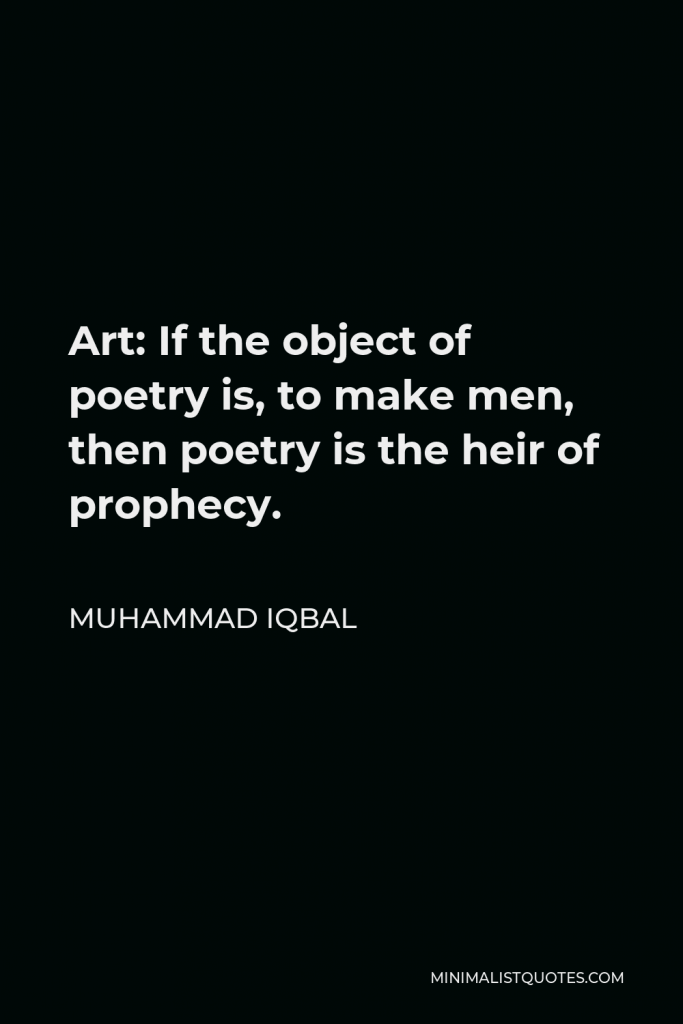

Art: If the object of poetry is, to make men, then poetry is the heir of prophecy.
MUHAMMAD IQBAL -





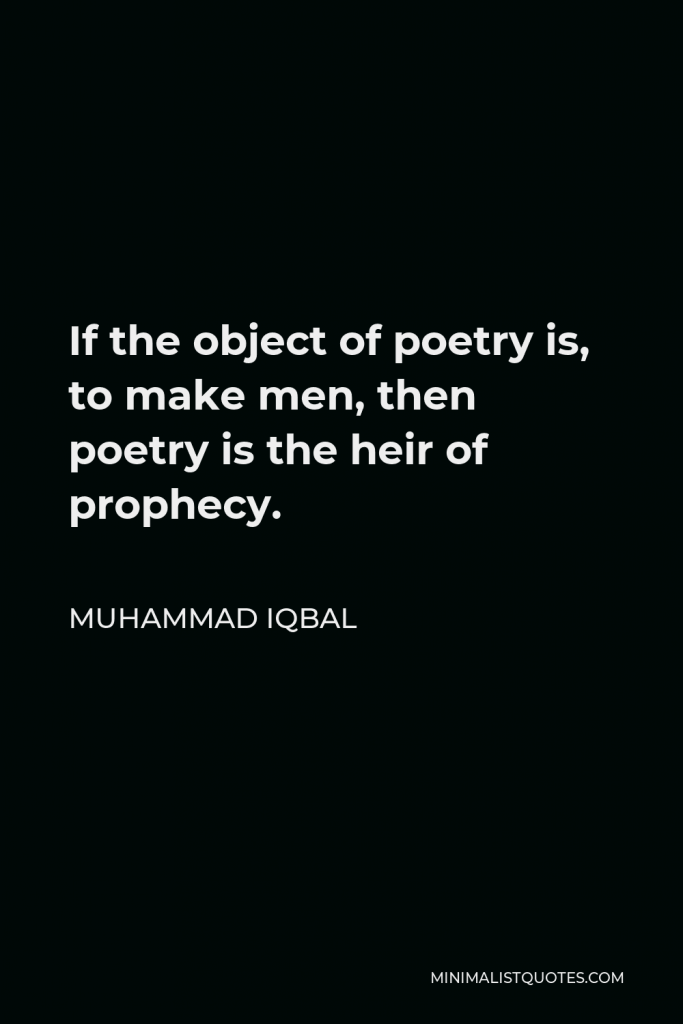

If the object of poetry is, to make men, then poetry is the heir of prophecy.
MUHAMMAD IQBAL -





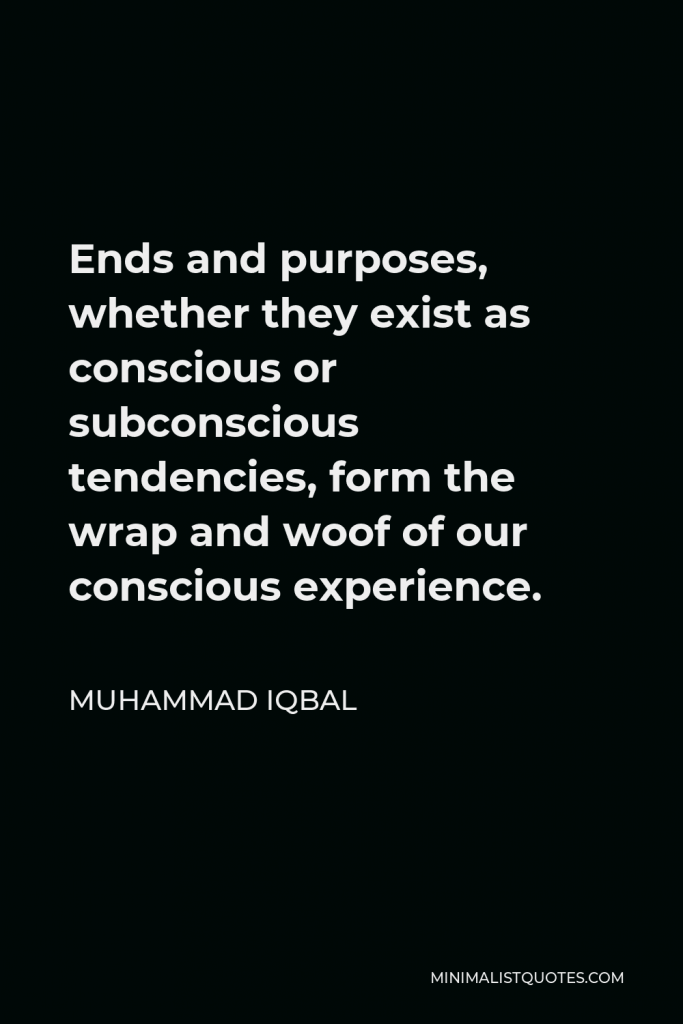

Ends and purposes, whether they exist as conscious or subconscious tendencies, form the wrap and woof of our conscious experience.
MUHAMMAD IQBAL -





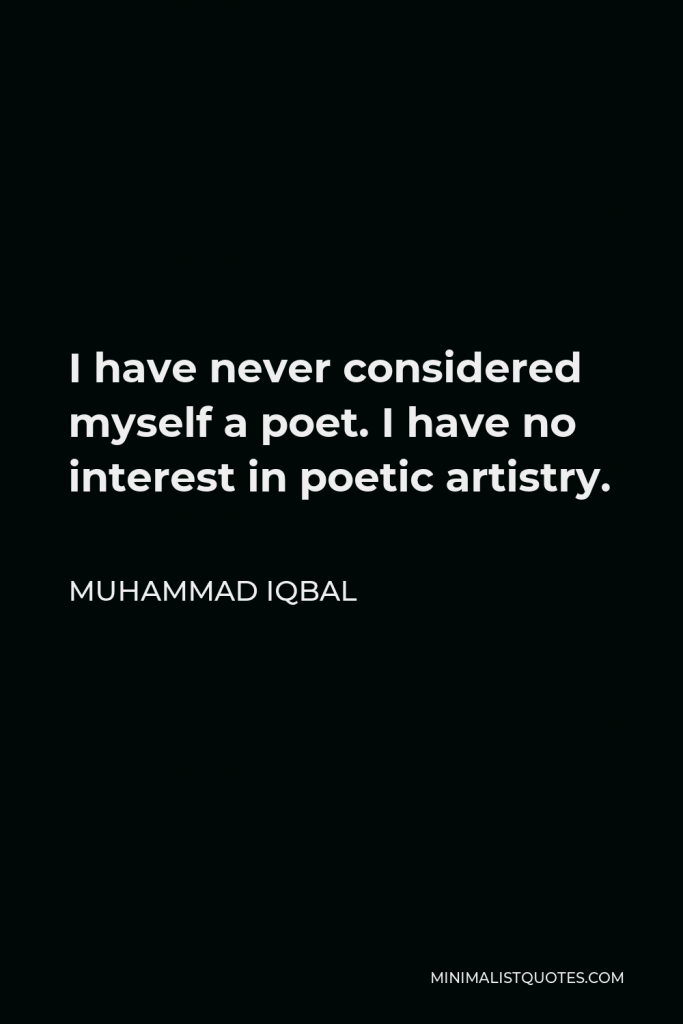

I have never considered myself a poet. I have no interest in poetic artistry.
MUHAMMAD IQBAL -





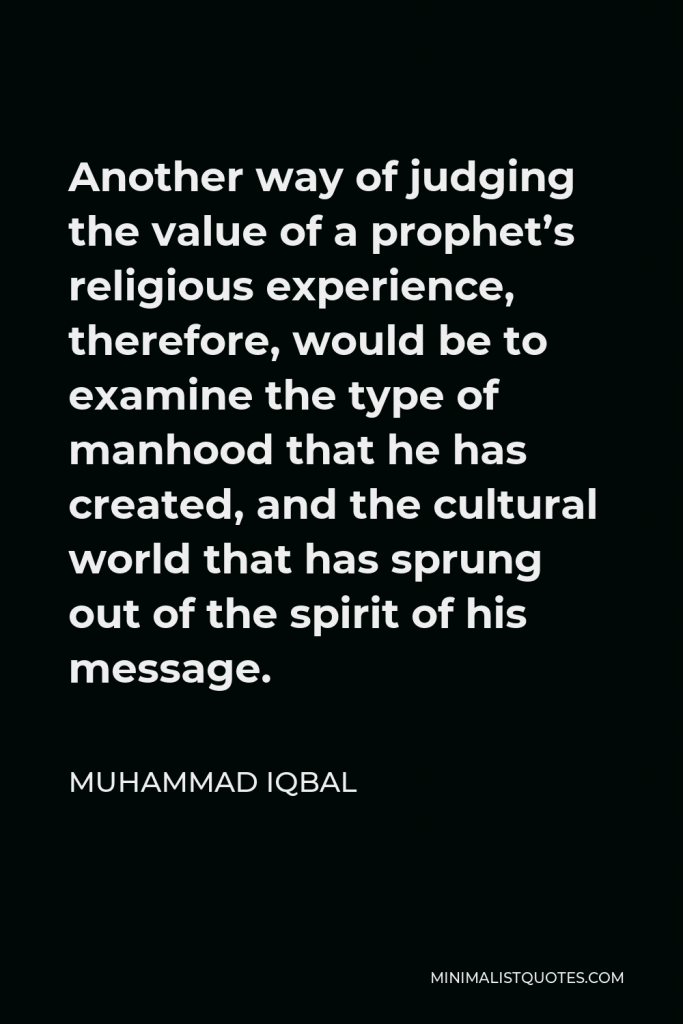

Another way of judging the value of a prophet’s religious experience, therefore, would be to examine the type of manhood that he has created, and the cultural world that has sprung out of the spirit of his message.
MUHAMMAD IQBAL -





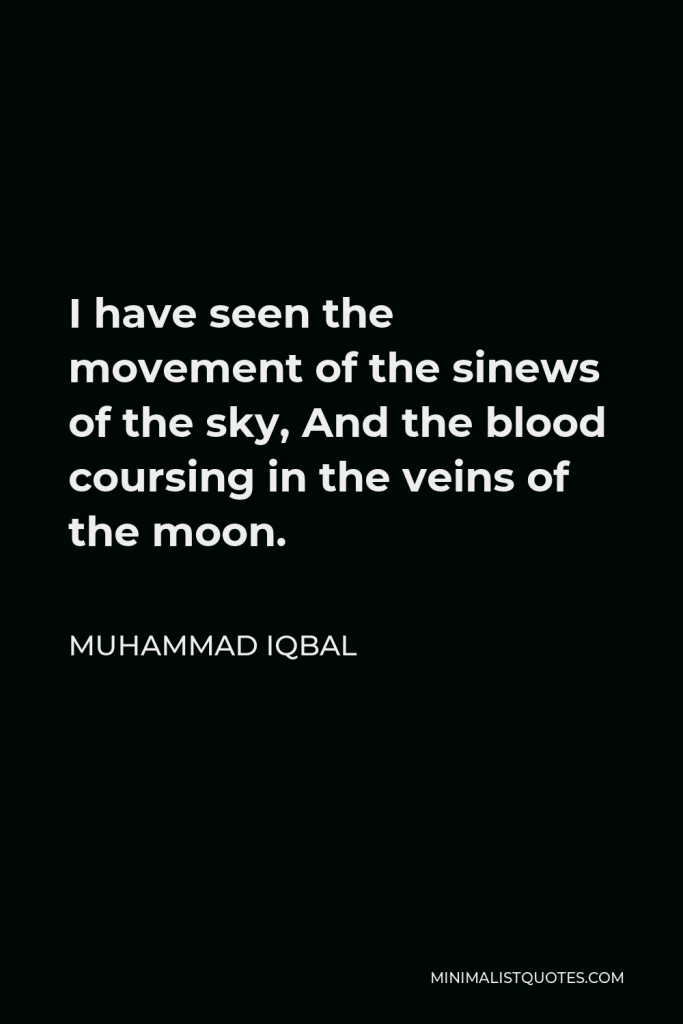

I have seen the movement of the sinews of the sky, And the blood coursing in the veins of the moon.
MUHAMMAD IQBAL -





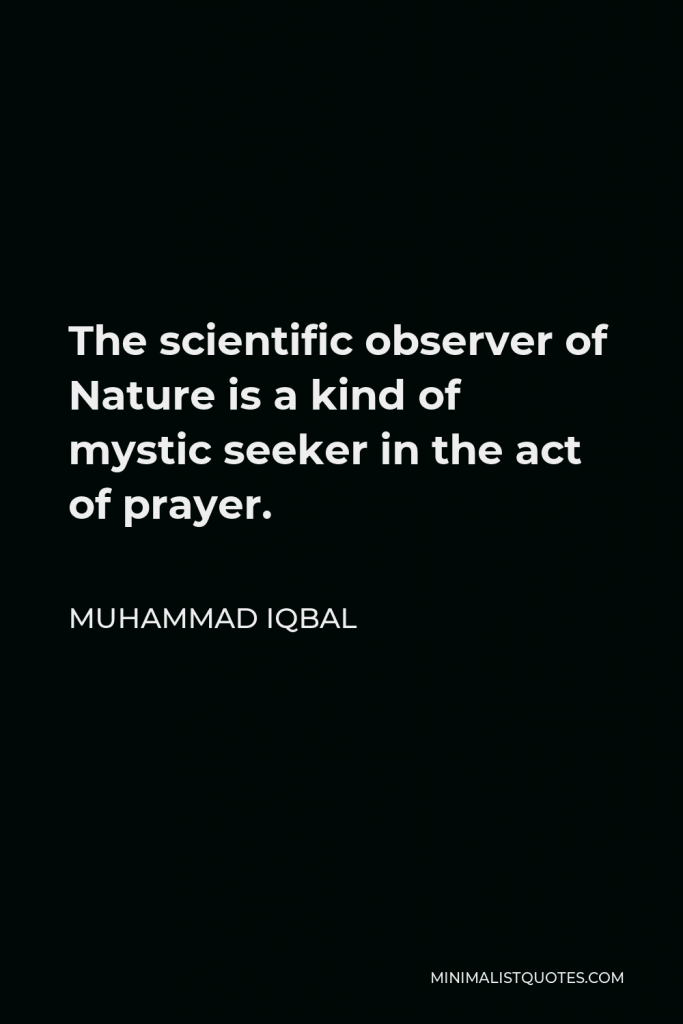

The scientific observer of Nature is a kind of mystic seeker in the act of prayer.
MUHAMMAD IQBAL -





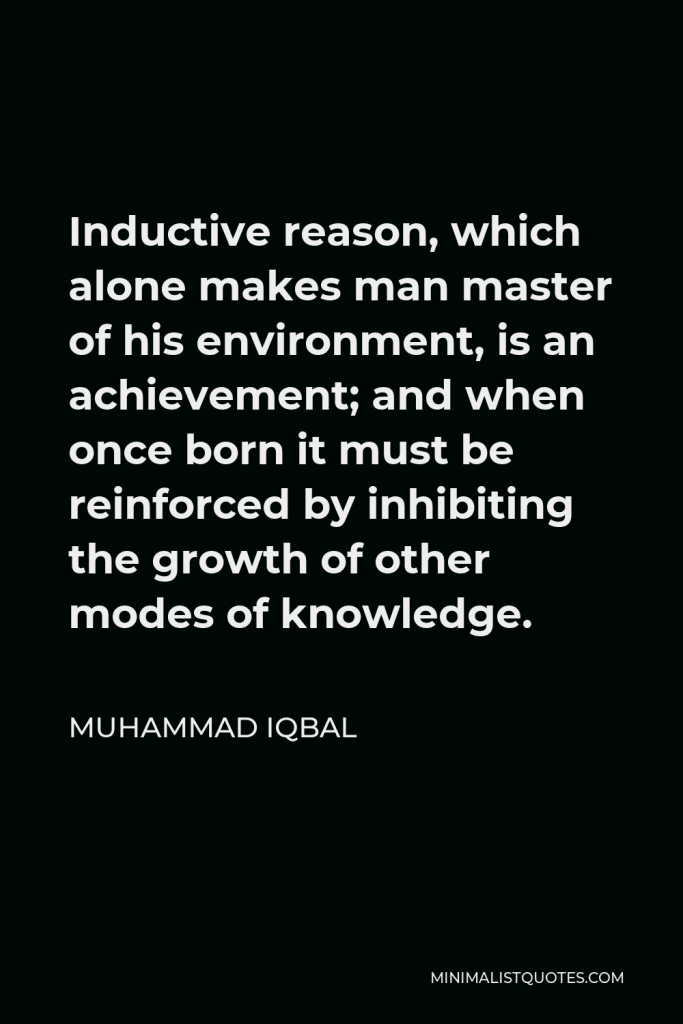

Inductive reason, which alone makes man master of his environment, is an achievement; and when once born it must be reinforced by inhibiting the growth of other modes of knowledge.
MUHAMMAD IQBAL -





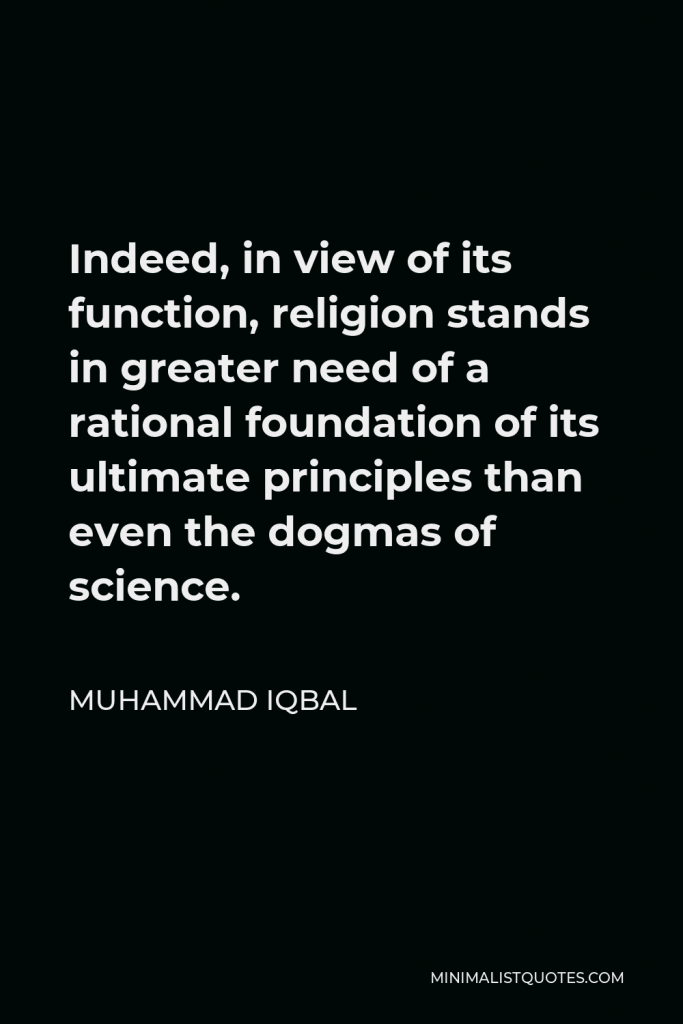

Indeed, in view of its function, religion stands in greater need of a rational foundation of its ultimate principles than even the dogmas of science.
MUHAMMAD IQBAL -





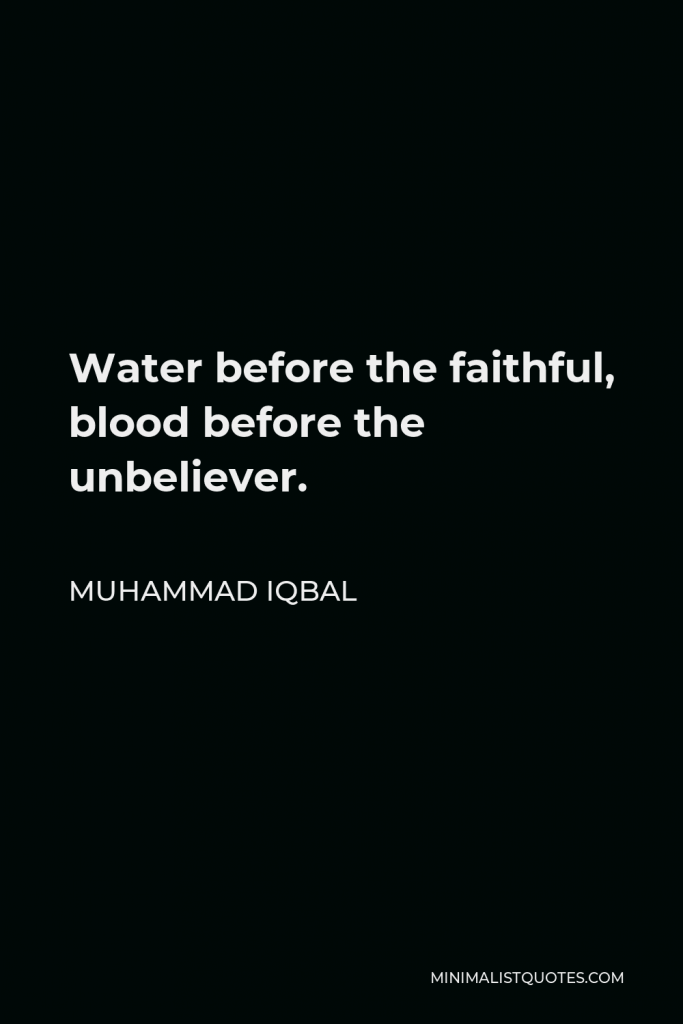

Water before the faithful, blood before the unbeliever.
MUHAMMAD IQBAL -





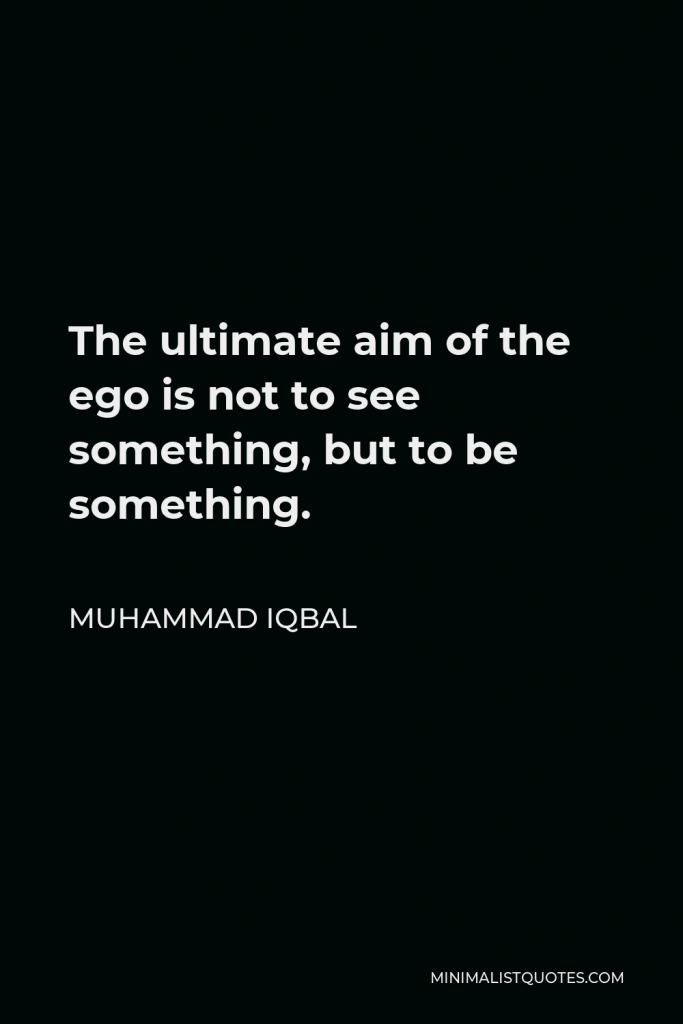

The ultimate aim of the ego is not to see something, but to be something.
MUHAMMAD IQBAL -





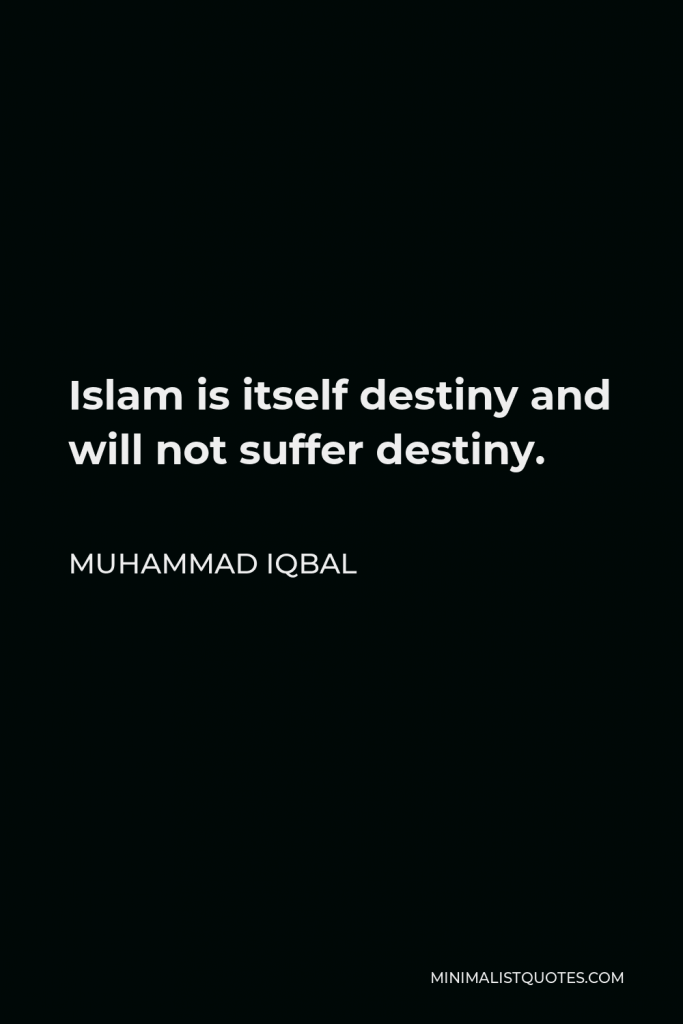

Islam is itself destiny and will not suffer destiny.
MUHAMMAD IQBAL -





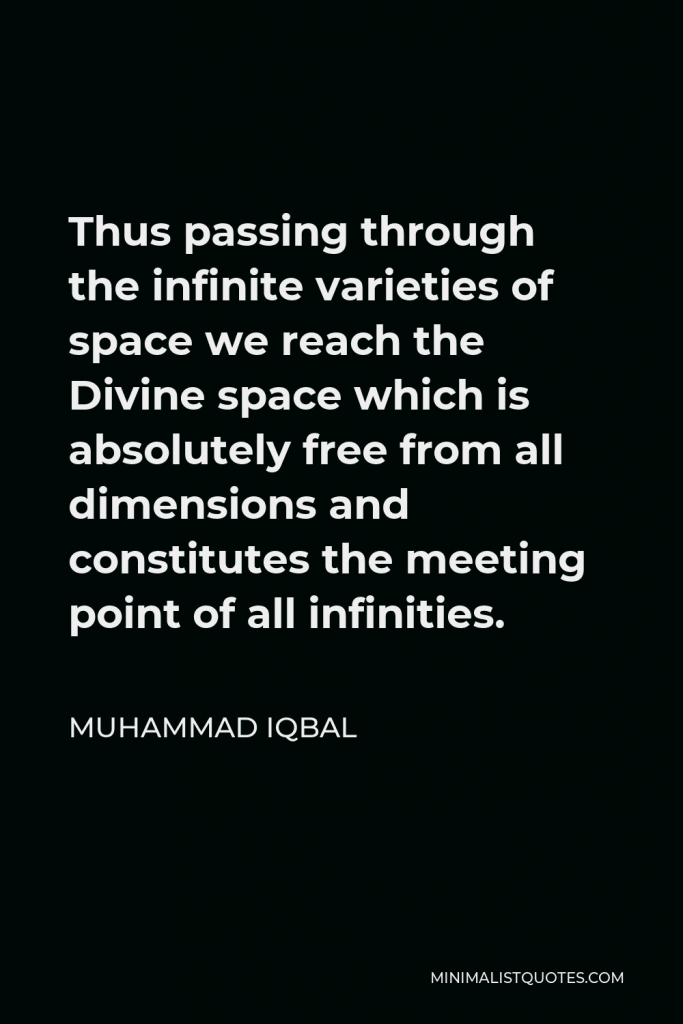

Thus passing through the infinite varieties of space we reach the Divine space which is absolutely free from all dimensions and constitutes the meeting point of all infinities.
MUHAMMAD IQBAL -





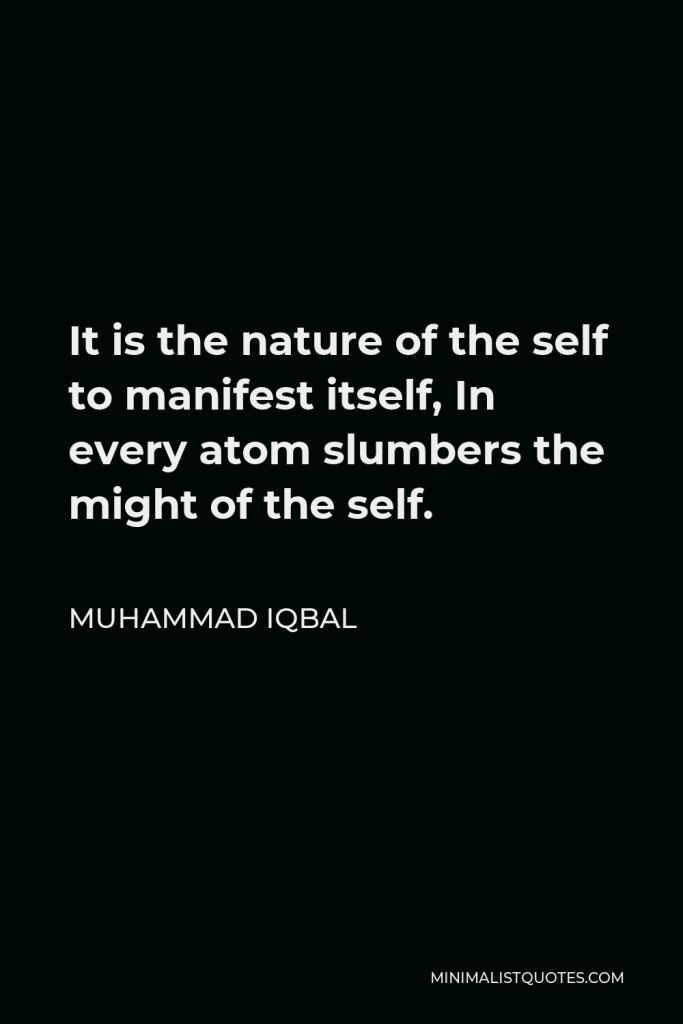

It is the nature of the self to manifest itself, In every atom slumbers the might of the self.
MUHAMMAD IQBAL
